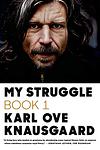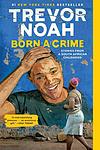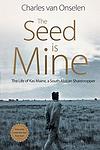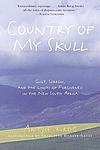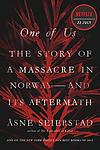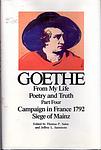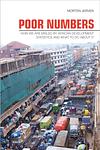The Greatest Norwegian, South African "Nonfiction" Books Since 1980
Click to learn how this list is calculated.
This list represents a comprehensive and trusted collection of the greatest books. Developed through a specialized algorithm, it brings together 300 'best of' book lists to form a definitive guide to the world's most acclaimed books. For those interested in how these books are chosen, additional details can be found on the rankings page.
Genres
Countries
Date Range
Reading Statistics
Click the button below to see how many of these books you've read!
Download
If you're interested in downloading this list as a CSV file for use in a spreadsheet application, you can easily do so by clicking the button below. Please note that to ensure a manageable file size and faster download, the CSV will include details for only the first 500 books.
Download-
1. Long Walk To Freedom by Nelson Mandela
"Long Walk to Freedom" is a powerful autobiography that chronicles the extraordinary life of Nelson Mandela. From his humble beginnings in a rural village to becoming the first black president of South Africa, Mandela's journey is one of resilience, determination, and unwavering commitment to justice and equality. Through his personal experiences, he provides a vivid account of the struggle against apartheid, his 27 years of imprisonment, and the eventual triumph of democracy. This book serves as an inspiring testament to Mandela's unwavering spirit and his lifelong fight for freedom and human rights.
-
2. The Bookseller of Kabul by Asne Seierstad
This book provides an intimate and eye-opening look into the everyday life of an Afghan family. The narrative follows a bookseller in Kabul, who despite the oppressive Taliban regime, courageously continues his trade. The story delves into his family dynamics, the struggles of his two wives, his children's lives, and the societal norms and customs they navigate. It paints a vivid picture of life in Afghanistan, exploring the themes of love, courage, resilience, and the power of literature.
-
3. My Struggle by Karl Ove Knausgaard
The book in question is an autobiographical novel that delves deeply into the minutiae of the author's life, exploring his personal relationships, emotions, and the everyday experiences that shape his identity. It is a candid and introspective narrative that spans across various stages of his life, from childhood to adulthood, and examines themes such as family, death, love, and ambition. The author's unflinching honesty and detailed prose invite readers to reflect on the complexities of their own lives, as he scrutinizes the ordinary moments that, collectively, define who we are.
-
4. Kaffir Boy by Mark Mathabane
This autobiography tells the story of a young boy growing up in apartheid-era South Africa. Despite enduring extreme poverty, brutal police raids, and constant racial discrimination, the protagonist manages to escape his harsh reality through education and tennis. His determination and resilience eventually lead him to receive a scholarship to an American university, providing him a chance to escape the oppressive system of apartheid.
-
5. Born A Crime by Trevor Noah
"Born A Crime" is a captivating memoir that chronicles the life of Trevor Noah, a South African comedian and television host. Set during the apartheid era, the book explores Noah's experiences as a mixed-race child growing up in a society where interracial relationships were illegal. With humor and insight, Noah recounts his struggles with identity, poverty, and racism, while also highlighting the resilience and strength of his mother who played a pivotal role in his life. This thought-provoking memoir offers a compelling and personal perspective on race, family, and the power of laughter in the face of adversity.
-
6. The Seed Is Mine by Charles Van Onselen
"The Seed Is Mine" is a historical non-fiction book that explores the life of a black South African named Klaas, who lived through the tumultuous years of apartheid. Through extensive research and interviews, the author delves into Klaas' personal experiences, struggles, and aspirations, shedding light on the complex dynamics of race, class, and power during this period. The book offers a poignant and intimate portrayal of one man's fight for dignity and justice amidst a system designed to suppress and oppress.
-
7. Country Of My Skull by Antjie Krog
"Country Of My Skull" is a powerful and deeply personal account of the author's experiences as a journalist covering the Truth and Reconciliation Commission in post-apartheid South Africa. Through her vivid and introspective narrative, the author explores the complexities of forgiveness, justice, and the collective healing process of a nation grappling with its painful past. This thought-provoking book offers a unique perspective on the complexities of reconciliation and the enduring impact of trauma on individuals and societies.
-
8. One Of Us: The Story Of Anders Breivik And The Massacre In Norway by Asne Seierstad
One of Us by Asne Seierstad is a detailed account of the 2011 terrorist attack in Oslo, Norway, carried out by Anders Breivik. The book explores Breivik's background, motives, and planning leading up to the attack, as well as the aftermath and impact on the survivors and families of the victims. Seierstad's thorough research and interviews with those affected provide a comprehensive and emotional portrayal of the tragedy, shedding light on the complexities of extremism and the devastating consequences of hate.
-
9. Boyhood: Scenes from provincial life by J M Coetzee
"Boyhood: Scenes from Provincial Life" is a semi-autobiographical novel that explores the author's childhood in South Africa during the apartheid era. The narrative delves into the complexities of family dynamics, racial tension, and the struggle of a young boy trying to understand his place in a divided society. The protagonist grapples with his identity, torn between his Afrikaner heritage and his English schooling, while also navigating the trials of adolescence. The book offers a poignant and often painful reflection on the formative years of a boy growing up in a fraught and turbulent time.
-
10. Ecology, Community And Lifestyle by Arne Naess
"Ecology, Community and Lifestyle" is a philosophical text that outlines the principles of deep ecology, a movement emphasizing the intrinsic value of all living beings and the need for radical shifts in modern human societies to sustain ecological balance. The book delves into the interdependence between human life and the environment, advocating for a comprehensive transformation in our lifestyles and political systems to foster a sustainable relationship with the earth. It combines insights from ecology, philosophy, and sociology to propose a more harmonious way of living that respects the limits of the planet's resources and promotes a thriving, diverse biosphere.
-
11. A Death in the Family by Karl Ove Knausgaard
"A Death in the Family" is a deeply personal and introspective narrative that delves into the complexities of familial relationships, childhood, death, and memory. The protagonist, a writer, is forced to confront his past and his relationship with his alcoholic father after his death. The novel explores the impact of this death on the protagonist's life and his struggle to come to terms with his complicated feelings of love, resentment, and guilt. The narrative is a profound exploration of the human condition, the intricacies of family dynamics, and the lasting impact of grief and loss.
-
12. Poor Numbers by Morten Jerven
This book critically examines the reliability of economic statistics in Sub-Saharan Africa, revealing a significant gap between the reported data and the actual economic realities on the ground. The author delves into the systemic issues plaguing statistical offices across the continent, including underfunding, political interference, and a lack of technical capacity, which collectively contribute to the production of inaccurate economic data. By analyzing the processes and methodologies used to gather and report these statistics, the book sheds light on the profound implications these "poor numbers" have for policy-making, economic development, and international perceptions of African economies. Through this exploration, it calls for a reevaluation of how economic data in these countries is collected and used, advocating for reforms that could lead to more accurate and meaningful measurements of economic progress.
Reading Statistics
Click the button below to see how many of these books you've read!
Download
If you're interested in downloading this list as a CSV file for use in a spreadsheet application, you can easily do so by clicking the button below. Please note that to ensure a manageable file size and faster download, the CSV will include details for only the first 500 books.
Download

